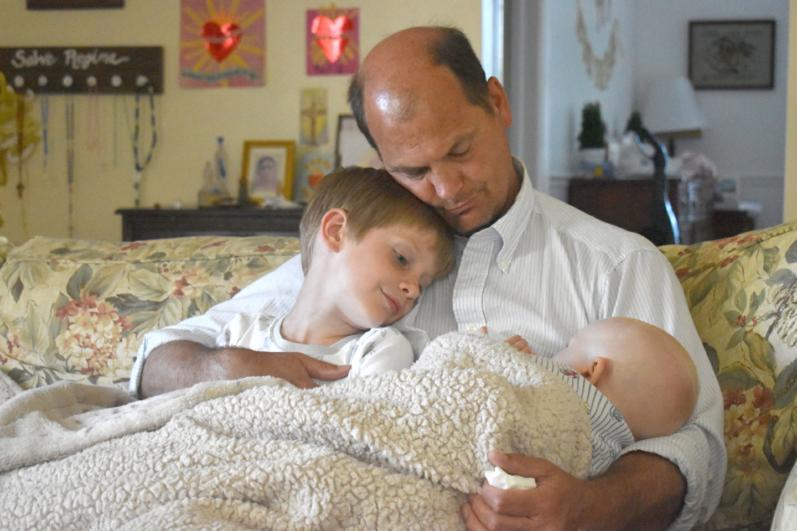What justifies natural family planning?
Q. My wife and I are planning to take our two children on a trans-Atlantic trip next spring to visit my grandmother. We expect that it will be her only opportunity to meet her great-grandchildren, as she is in poor health.
However, my wife has expressed concern about taking that long plane trip if she should then be pregnant. Additionally, general medical advice seems to be that women are better off waiting for a year after birth before becoming pregnant again. (Our youngest is 8 months old.)
Pope Paul VI's "Humanae Vitae" allows for the use of natural family planning to avoid pregnancy when there are "well-grounded reasons" (also translated as "just cause"), while Pope Pius XII's "Address to Midwives on the Nature of their Profession" required "grave reasons" for such use. Has the Church clearly settled which of these standards to apply? (Wichita, Kansas)
A. Your question is answered in the Catechism of the Catholic Church: "For just reasons, spouses may wish to space the births of their children. It is their duty to make certain that their desire is not motivated by selfishness but is in conformity with the generosity appropriate to responsible parenthood" (No. 2368).
Even Pope Pius XII's 1951 address to midwives, which you referenced, mentions "medical, eugenic, economic and social" reasons as possible justification for licit use of the sterile period. In your own circumstances, my pastoral judgment would allow natural family planning. Your motive is certainly not one of selfishness, but kindness to your grandmother.
Q. My husband died suddenly and did not receive the last rites of the Catholic Church. We had just come back from Mass and Communion about three hours earlier. I am very upset that he was not able to receive the last rites, and this has been very difficult on me. I would be grateful for your thoughts on this. (Columbus, Georgia)
A. I would not be worried about your husband's salvation. I suspect strongly that he was wonderfully prepared to meet the Lord -- having just shared in the celebration of Mass, together with receiving the Lord in the Eucharist.
God is not bound by the sacraments; if one has led a good, prayerful and charitable life, he has little to fear when the moment of death arrives -- even if that should come suddenly. At the same time, though, I don't want to minimize the importance of the anointing of the sick.
As the Catechism of the Catholic Church says, the conferral of that sacrament has several effects: "the uniting of the sick person to the passion of Christ, for his own good and that of the whole Church; the strengthening and courage to endure in a Christian manner the sufferings of illness or old age; the forgiveness of sins, if the sick person was not able to obtain it through the sacrament of penance; the restoration of health, if it is conducive to the salvation of his soul; (and) the preparation for passing over to eternal life" (No. 1532).
Given the salutary effects of this sacrament, the Church recommends not waiting until death is imminent before requesting to be anointed. Any serious illness, even early in its course, qualifies a person to ask for this sacrament.
- Father Kenneth Doyle is a columnist for Catholic News Service



















